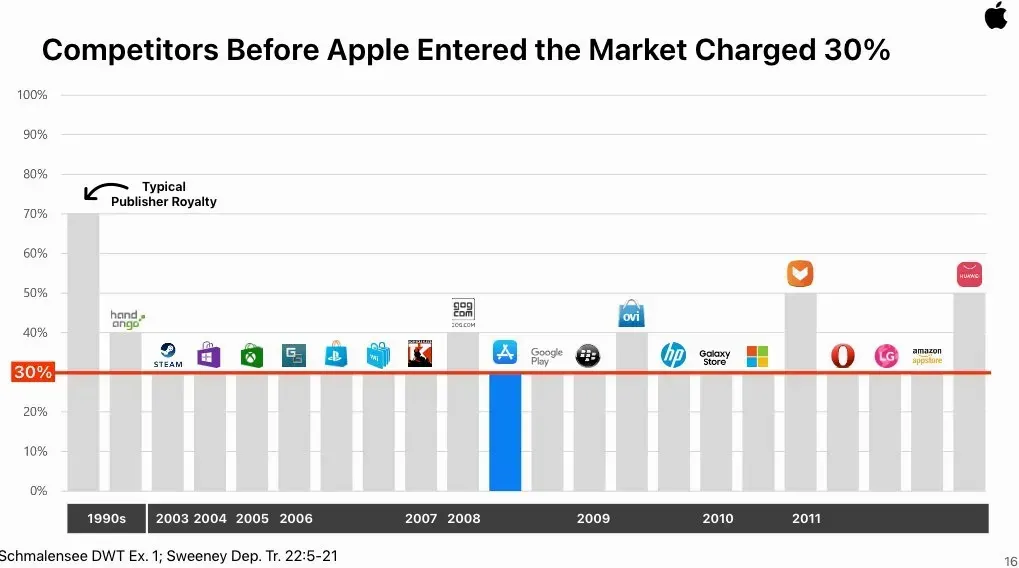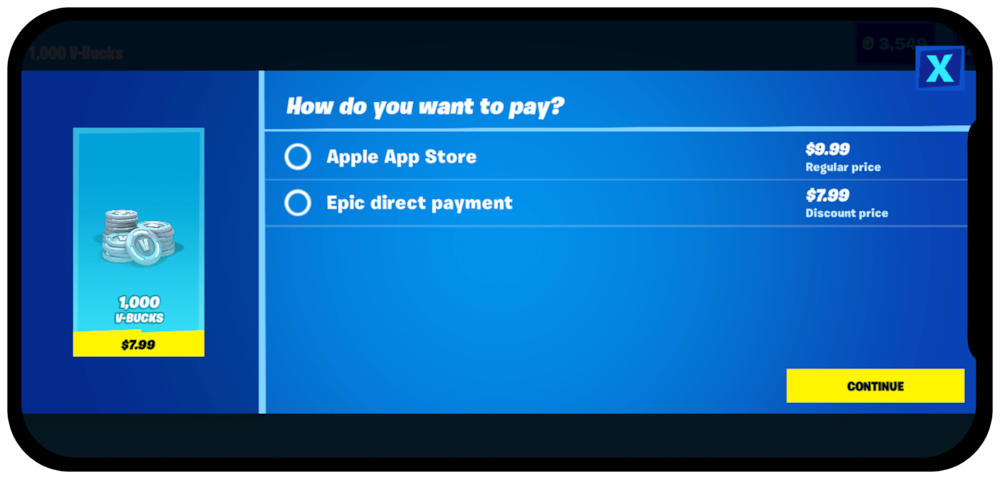1984 Returns: Epic Games v. Apple Court Debate Summary
After the Epic Games vs. Apple court battle, the Financial Times pointed out that " Epic Games' odds have increased from 33% to 55% ", is this true? After my previous day-by-day summaries of the long 16 days of court arguments here at Matters, I don't think this statement is false.
First of all, three months after Epic Games filed the lawsuit, Apple launched the " App Store Small Business Plan " to reduce the commission from 30% to 15%. Apple executives admitted that in addition to considering the impact of the COVID-19 epidemic on many small businesses In addition, it is indeed affected by the pressure of this lawsuit.
Judge Yvonne Gonzalez Rogers (YGR) also pointed out that the 30% commission rate has not changed since 2008, and the "App Store Small Business Program" is not the result of free market competition, which is obviously a problem.

However, whether it is the current status of the App Store's exclusive distribution channel for iOS software, or the 30% commission rate, it is exactly the same as the home game console market, whether it is Sony PlayStation, Microsoft Xbox, Nintendo Switch all adopt the same model of operation. If the judge decides that the App Store is a market monopoly and will also affect the home game console market, the possibility of such a decision is still low. After all, the relevant statistical evidence may be insufficient, and the boundaries of alternative products in the market are also blurred-for example, playing "Fortress" on mobile phones. Is the experience of Fortnite and the experience of playing on a home console interchangeable? This alone has many arguments in court.

The source of the event that Epic Games initiated the lawsuit is the insertion of a cheaper self-payment channel (Epic direct payment) in the game "Fortress Hero", because Apple's App Store Review Guidelines 3.1.1 In-App Purchase (IAP, App In-app purchases) , it is forbidden to provide payment channels other than IAP in the app, which is called "anti-steering provisions" in the court.
Many Apple executives pointed out that once other payment channels are allowed, it will be equivalent to giving up IAP. This shows that Apple also knows that if IAP is defined as a simple payment channel, the 30% cut will be uncompetitive. For Apple, IAP is a means of collecting commissions from the iOS ecosystem, just like a department store charges a commission proportional to its revenue for franchised counters.
The Supreme Court previously ruled that American Express's "anti-bootstrap clause" (which only requires merchants not to discourage consumers from using American Express cards with higher swipe fees) did not stifle competition in the two-sided market, but Judge YGR pointed out that The App Store is different from Google Play's duopoly market, and in the general store, all supported credit card types are still fully displayed.
In addition, this does cause anti-competitive problems. For example, Spotify, as a competitor of Apple Music, sued Apple in the EU to force the use of this commission channel, which increases the price cost of competitors. Differential pricing or no purchase mechanism in the app ), the EU has made a preliminary ruling , and the judge YGR also pointed out that Apple can find other channels for charging commissions, which means that the final judgment will likely make the App Internal payment channels are no longer limited to IAP!
No matter how conservative the judgment is, it should require Apple to restore the developer account of Epic Games suspended, especially Apple extended an olive branch at the end of the trial and offered to return "Fortress Heroes" to the App Store. However, regardless of the outcome of the court's decision, the losing party will almost certainly appeal, and it will probably take several years before a final outcome is reached.
In addition to these two cases, there are many lawsuits against Apple initiated by developers; in the court, there is a statistics of Apple developers' opinions, which even presents the developers' bipolar evaluation of Apple. It can be said that in this iOS city, Apple exclusively operates a department store App Store, which eventually led to many developers becoming cold-hearted and even stagnant innovation momentum. This is the root cause of Apple’s monopoly case. For more stories, please refer to 2021– 06 "Digital Times" magazine column: " Inspired by only one department store in the city, developers are cold-hearted, monopoly cases are ridden, and Apple has stalled innovation? "
(This article was first published in the Digital Age column , and has been fine-tuned.)
Like my work? Don't forget to support and clap, let me know that you are with me on the road of creation. Keep this enthusiasm together!


- Author
- More